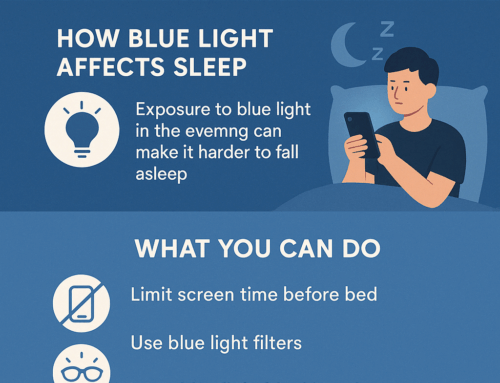Why does mental health training matter?
With 1 in 5 adults experiencing mental illness in any given year and 1 in 6 U.S. youth aged 6-17 experiencing a mental health disorder each year, it’s clear that mental health issues are widespread. However, unlike physical health problems, mental health challenges often go unnoticed or misunderstood. Many people feel ill-equipped to address these concerns when they arise, either in themselves or in others.
Mental health training provides critical knowledge about mental health disorders, reduces stigma, and empowers individuals to provide early intervention. Whether in a workplace, school, home, or community setting, these trainings can save lives, reduce the severity of crises, and foster a more supportive environment.
What is Mental Health First Aid?
According to the Mental Health First Aid site (MHFA), “Mental Health First Aid is an evidence-based, early-intervention course that teaches participants about mental health and substance use challenges.” MHFA is a nationally recognized training program designed to teach participants how to identify, understand, and respond to signs of those dealing with mental health issues and mental health crises, along with substance use disorders. Much like traditional first aid, MHFA gives participants the tools to assist someone in a mental health crisis until professional help can be accessed.
The course typically covers:
- Recognizing common mental health disorders like depression, anxiety, and PTSD
- Approaching someone in distress with empathy and without judgment
- Providing initial support for individuals experiencing panic attacks, suicidal thoughts, or psychosis
- Connecting individuals to professional help and appropriate resources
MHFA is built around a simple, actionable plan known as ALGEE:
Assess for risk of suicide or harm.
Listen nonjudgmentally to the individual.
Give reassurance and information.
Encourage professional help.
Encourage self-help and other support strategies.
The training does not make participants mental health professionals but provides them with the confidence to act when faced with a mental health challenge, much like physical first aid empowers people to address injuries or illnesses. Ben and I have done the initial and instructor training, and we highly recommend it.
Other Forms of Mental Health Training
While MHFA is one of the most well-known programs, several other types of mental health training can be beneficial for different populations:
Mental Health Awareness Training from SAMHSA
Mental Health Awareness Training (MHAT) helps communities and individuals respond appropriately to persons with mental health challenges and or disorders, particularly those with serious mental illness (SMI) and serious emotional disturbances (SED). To learn more about this training, visit the SAMHSA site.
Trauma-Informed Care (TIC) Training
Trauma-informed care focuses on understanding and responding to the effects of trauma, which is often at the root of many mental health issues. TIC training helps professionals and caregivers provide supportive care without triggering more trauma. This is especially useful in educational, healthcare, and social service settings.
Youth Mental Health First Aid
From the creators of MHFA, Youth Mental Health First Aid focuses specifically on the unique challenges faced by adolescents. Participants learn how to support teens experiencing anxiety, depression, substance use, behavioral disorders, or suicidal ideation, making it essential training for educators, parents, and youth workers. Ben and I have taken this training along with the instructor training and found this to be the best we have received concerning youth. To learn more about teen mental health visit our blog.
Workplace Mental Health Training
More companies are investing in workplace mental health programs that address employees’ unique pressures. These trainings often include stress management, resilience building, and creating a supportive and inclusive workplace culture prioritizing mental well-being. You can find valuable resource training for the workplace with Erin Callinan at Beneath the Brave.
Benefits of Mental Health Training
Early Intervention
The earlier someone receives support for a mental health issue, the better their chances for recovery. Mental health training equips individuals to recognize warning signs and intervene before the situation worsens.
Reducing Stigma
Mental health remains stigmatized in many cultures, but education can break down those barriers. Training like MHFA normalizes conversations around mental health, making it easier for individuals to seek help without fear of judgment.
Promoting a Supportive Environment
Mental health training fosters more empathetic and supportive environments in schools, workplaces, and communities. Feeling safe and supported increases one’s likelihood of thriving mentally and physically.
Saving Lives
In some cases, mental health crises can escalate to life-threatening situations. Learning how to intervene during a suicide crisis or severe panic attack can save lives.
How to Get Involved in Mental Health Training
If you’re interested in becoming trained in mental health support, there are several options available:
- Mental Health First Aid: This training is available in person and online. To find courses near you, visit the official MHFA website.
- Local Mental Health Organizations: Many community health centers and mental health organizations offer various types of training, from MHFA to trauma-informed care workshops.
- Workplace and School Programs:
- Workplace training like Beneath the Brave
- Some educational institutions provide free or subsidized mental health training for employees, teachers, and students. Speak with the school administration to find out what’s available.
Mental health trainings like Mental Health First Aid provide the tools and confidence to support those in crisis while fostering a greater understanding of mental health in our communities. By investing in these programs, individuals and organizations can reduce stigma, promote early intervention, and create environments where mental well-being is prioritized. Whether you’re a teacher, parent, co-worker, or friend, learning about mental health could make all the difference in someone’s life.







Leave A Comment